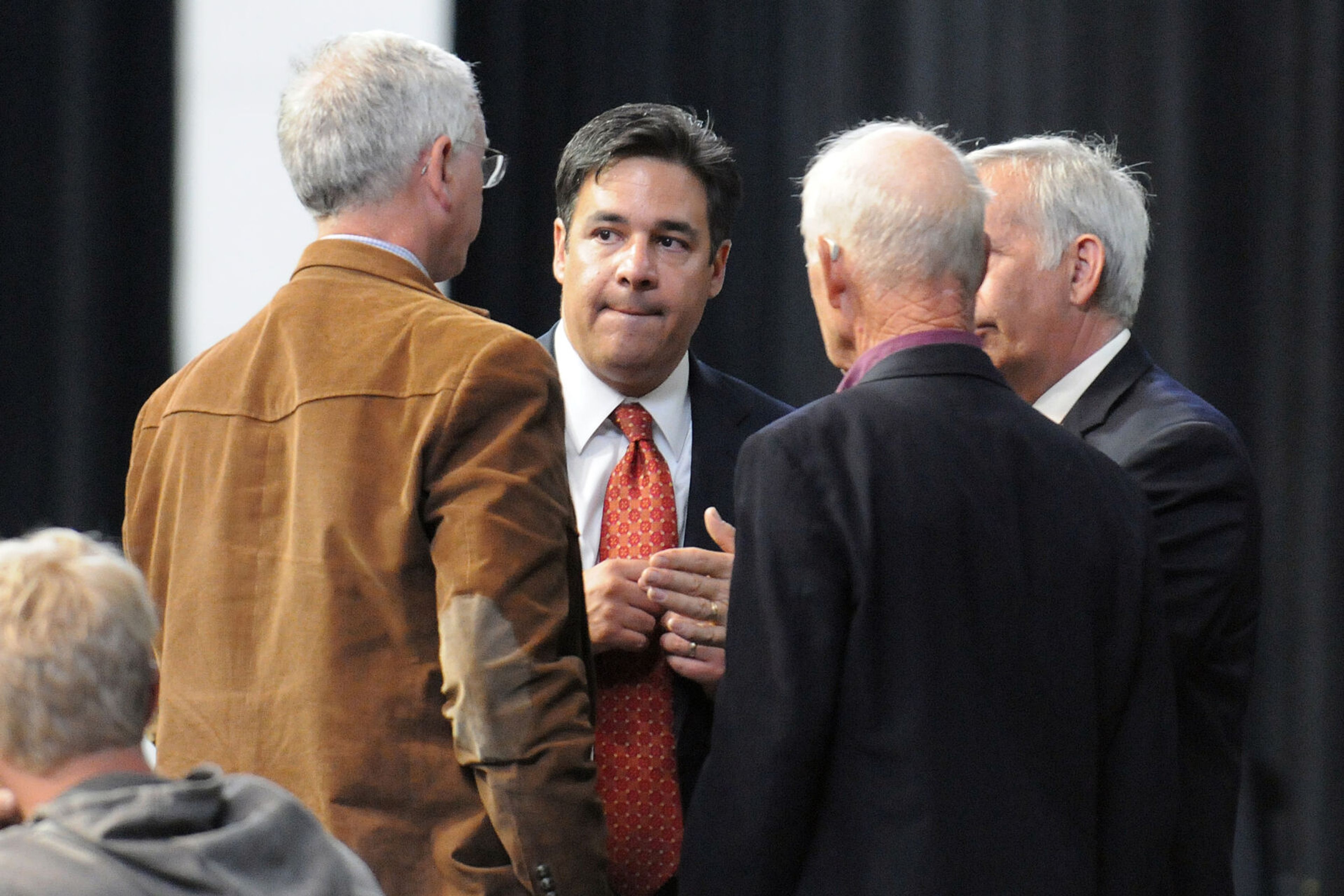Rep. Troy sponsors two election bills
Measures would address absentee ballots and unaffiliated voter registration
BOISE — The first two of what’s expected to be a multitude of election and election integrity bills this session were introduced in the House State Affairs Committee on Thursday.
One proposal implements new guidelines for who can help nursing home residents fill out absentee ballots. The second changes the deadline by which unaffiliated voters must update their registration, if they want to vote in a party primary.
Both measures were co-sponsored by Rep. Caroline Troy, R-Genesee, and Sen. Mary Souza, R-Coeur d’Alene.
Troy noted that elderly Idahoans who live in nursing homes or other long-term care facilities often vote by absentee ballot, and may need help filling out the ballot.
State law currently doesn’t address who can provide that assistance. For example, House State Affairs Chairman Brent Crane, R-Nampa, noted that political candidate can get a list of absentee ballot requests and go to a nursing home to “help” elderly residents fill out them out.
Troy’s bill clarifies that such assistance can only be provided by immediate family members, representatives of the local county clerk’s office, or Republican and Democratic party volunteers who have received training from the clerk’s office.
In the latter instance, the Republican and Democratic volunteers must visit the nursing home together. The whole intent, Troy said, is “to ensure that residents of long-term care facilities get fair, impartial help in filling out their ballots.”
Another provision in the legislation makes it a misdemeanor to “advise, suggest, request or otherwise influence the person voting by absentee ballot to make one choice on the ballot over another.”
Troy noted the provision only comes into play if the nursing home asks the county clerk to send someone over to help people with their ballots, and that person then tries to influence them.
Committee members seemed generally supportive of the bill, although some were concerned it could open the door to more partisan influence.
The second bill introduced Thursday addresses the deadline by which unaffiliated voters can decide to affiliate with a political party.
Currently, Republicans or Democrats who want to change their party affiliation to vote in a primary election must do so by the candidate filing deadline. Unaffiliated voters, by contrast, can wait until Election Day to make that decision.
Troy’s bill eliminates the special treatment for unaffiliated voters. If they want to affiliate with a political party, they would have to do so by the candidate filing deadline.
The bill really only affects unaffiliated voters who want to vote in the closed Republican primary. State law lets each major party decide who can vote in its primary; Democrats and Constitution Party officials allow unaffiliated voters to participate in their primaries, but Idaho Republicans only let registered Republican voters participate in their closed primary.
Both bills will now come back to the committee for public hearings.
Spence may be contacted at bspence@lmtribune.com or (208) 791-9168.








